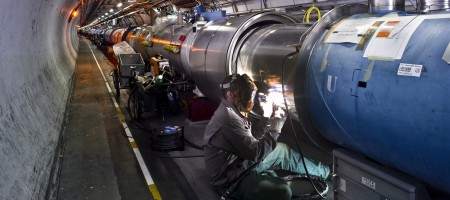The ALICE detector team at CERN has discovered that the very early universe consisted of a hot, dense liquid, rather than a gas.

By colliding lead nuclei together at the Large Hadron Collider, the ALICE experiment generated sub-atomic fireballs with a temperature of over ten trillion degrees, mimicking conditions during the first moments of the existence of the universe.
At these temperatures, normal matter is expected to melt into a primordial ‘soup’ known as quark-gluon plasma. Although previous research at lower energies indicated that the fireballs behaved like a liquid, many expected the quark-gluon plasma to act like a gas at these much higher energies.
“Although it is very early days, we are already learning more about the early universe,” says Dr David Evans, of the University of Birmingham and UK lead investigator for ALICE.
“These first results would seem to suggest that the universe would have behaved like a super-hot liquid immediately after the Big Bang.”
The team has also discovered that more sub-atomic particles are produced in these head-on collisions than some theoretical models previously suggested.
The fireballs resulting from the collision only lasts a short time, but when the ‘soup’ cools down, the researchers are able to see thousands of particles radiating out from the fireball.






